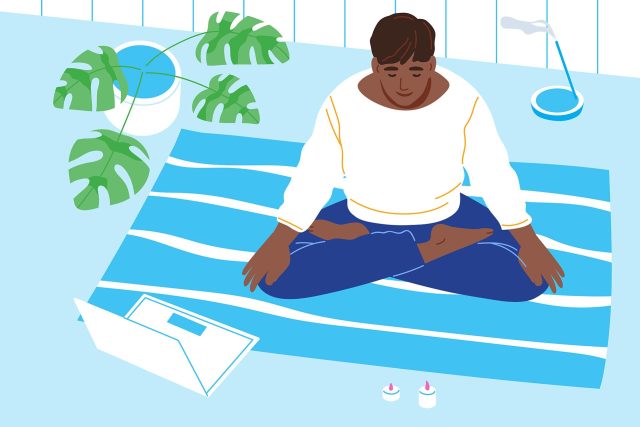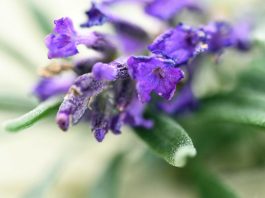In today’s fast-paced world, anxiety has become an all-too-common companion for many, often manifesting as a relentless cycle of worry and unease. While modern medicine offers a variety of treatments, there’s a timeless practice that has been gaining recognition for its profound ability to soothe the anxious mind: meditation. This ancient discipline, rooted in mindfulness and deep breathing, offers a sanctuary of calm amidst the chaos of everyday life. In this article, we will explore how meditation serves as a powerful tool for anxiety relief, providing not just temporary respite but fostering long-term resilience. Whether you’re new to meditation or seeking to deepen your practice, we aim to guide you through understanding its benefits, techniques, and the science behind its transformative effects. Join us on this journey to discover how meditation can be a compassionate ally in your quest for inner peace and emotional well-being.
Understanding Anxiety and Its Impact on Daily Life
Living with anxiety can feel like an uphill battle, affecting every facet of daily life. From waking up in the morning to settling down at night, anxiety can infiltrate thoughts, actions, and emotions, leaving one feeling overwhelmed. The constant presence of worry can make it difficult to focus on tasks, maintain relationships, and even enjoy leisure activities. However, embracing mindfulness through meditation can be a powerful tool in managing these symptoms.
- Improved Focus: Regular meditation practices train the mind to concentrate better, helping to reduce the racing thoughts that often accompany anxiety.
- Enhanced Emotional Health: Meditation fosters a sense of calm and balance, aiding in emotional regulation and reducing the intensity of anxiety.
- Better Sleep: Mindfulness techniques can lead to improved sleep patterns by relaxing the mind and reducing stress before bedtime.
| Impact of Anxiety | Meditation Benefits |
|---|---|
| Difficulty concentrating | Enhanced focus and clarity |
| Increased stress levels | Reduced stress and tension |
| Sleep disturbances | Improved sleep quality |

Exploring the Science Behind Meditations Calming Effects
Meditation, a practice rooted in ancient traditions, has become a powerful tool for alleviating anxiety. Scientific studies reveal that meditation can effectively alter brain activity and reduce stress. By engaging in regular meditation, individuals can tap into the brain’s natural ability to foster calmness and enhance emotional regulation.
Research highlights several key physiological changes during meditation that contribute to its calming effects:
- Reduced Cortisol Levels: Meditation helps lower cortisol, the hormone associated with stress, thereby promoting a state of relaxation.
- Increased GABA Production: Gamma-aminobutyric acid (GABA) is a neurotransmitter that inhibits neural activity, reducing anxiety and promoting a sense of peace.
- Enhanced Brain Connectivity: Regular practice strengthens connections between different brain regions, improving attention and emotional control.
Understanding these mechanisms can empower individuals to incorporate meditation into their daily routine for anxiety relief. The table below summarizes the benefits and potential impacts of meditation on anxiety:
| Benefit | Impact |
|---|---|
| Reduced Stress | Improves overall mental health |
| Improved Focus | Enhances daily productivity |
| Better Sleep | Increases restfulness and energy |

Practical Meditation Techniques to Soothe Anxious Minds
When anxiety starts to creep in, grounding yourself through meditation can be incredibly effective. Begin with the 4-7-8 breathing technique, a simple practice that can be done anywhere. Inhale quietly through your nose for a count of four, hold your breath for a count of seven, and exhale completely through your mouth for a count of eight. Repeat this cycle three to four times. This technique not only helps in slowing down your heart rate but also shifts your focus away from anxious thoughts.
- Body Scan Meditation: Lie down comfortably and close your eyes. Start from your toes, gradually bringing awareness to each part of your body. Notice any tension and consciously relax those areas. This helps in fostering a sense of calm and relaxation.
- Visualization: Picture a serene place—like a quiet beach or a lush forest. Engage all your senses by imagining the sounds, scents, and sights of this place. This immersive experience can distract from stress and create a mental escape.
- Mantra Repetition: Choose a calming word or phrase, such as “peace” or “I am calm.” Repeat it slowly and silently to yourself. This repetition helps in breaking the cycle of anxious thoughts and refocusing your mind.
| Technique | Benefit |
|---|---|
| 4-7-8 Breathing | Reduces heart rate |
| Body Scan | Relieves physical tension |
| Visualization | Creates mental escape |
| Mantra Repetition | Refocuses the mind |

Creating a Personalized Meditation Routine for Long-Term Relief
Crafting a meditation routine tailored to your unique needs can be a transformative journey towards alleviating anxiety. Personalization is key; what works for one person may not work for another. Begin by identifying the times of day when you feel most anxious. Is it in the morning, before bed, or perhaps during midday breaks? Understanding your anxiety patterns helps in selecting the right meditation practices.
- Morning Meditation: Start your day with a 5-10 minute session focusing on deep breathing to set a calming tone for the day.
- Afternoon Break: Use a quick 5-minute mindfulness exercise to re-center your thoughts and reduce stress.
- Evening Wind-Down: Consider a longer, 15-20 minute guided meditation to release the day’s tension and prepare for restful sleep.
Integrate these sessions into your daily routine, gradually increasing the duration as you become more comfortable. Utilize apps or online resources for guided meditations that resonate with you. Creating a meditation corner at home can also enhance your practice. Keep this space clutter-free, with calming elements like candles or soft cushions to invite peace and focus.
| Time of Day | Suggested Practice |
|---|---|
| Morning | Deep Breathing |
| Afternoon | Mindfulness Exercise |
| Evening | Guided Meditation |




